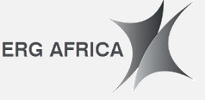We believe that a genuine commitment to sustainability and continuous improvement in everything we do is the most effective way to accelerate our progress in this area.
Committed to sustainable development
We are exploring ways in which we can better relate our business activities to the UN Sustainable Development Goals (SDGs) and to other international frameworks such as the Paris Agreement on climate change. This is with the aim of maximising our contribution to the achievement of relevant SDGs and minimising any negative impacts we might have in this respect.
ERGA invests significantly in education and in 2017 supported 15 schools, trained 250 teachers and provided education for more than 9,000 children. The Group has further collaborated with the international foundation, Good Shepherd Sisters, to fund the Bon Pasteur Alternative Livelihood programme that improves living conditions for women and children in Central Africa.
ERGA is driving numerous health, safety and sustainability initiatives, including staffing and managing a healthcare facility. Strong healthcare provision is absolutely essential for any natural resources business. ERGA has put rigorous health and safety policies in place and provides free healthcare to employees and their extended families. The Group has proactively implemented an industrial hygiene programme that measures personal exposure for employees and works with the DRC government on HIV/Aids, tuberculosis and ante-natal programmes.
Although the Group is investing considerably in Africa, it is mindful of the need to ensure that investments are sustainable. ERGA is directing a programme to boost food production on farming co-operatives and thus provide future revenue streams for households that expand agriculture beyond subsistence farming. Sustainable socio-economic programmes empower local communities whilst also recognising that communities know how to best resolve their own identified problems.
In order to facilitate sustainability, ERGA has adopted a participatory rural appraisal system. This consists of a five-day process in which local communities identify their problems and compile an action plan to overcome them. The community votes for its own socio-economic development committee and sub-committees are formed to tackle issues related to water, agriculture, and support for women and education.
-
Sustainable Development Report 2018: Key highlights in Africa
-
Embedding Sustainability: Performance highlights in 2017
